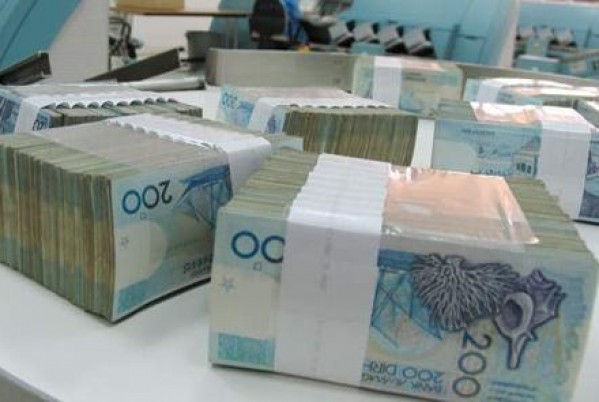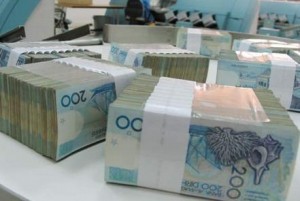Reuters
by Samia Errazzouki
* Morocco working with IMF on currency reforms
* Cenbank sees gradual liberalisation of dirham
* Finance minister says local sukuk before summer (adds currency rate, trade deficit)
Morocco plans to start the process of floating its dirham currency by June, the central bank governor said on Tuesday, setting a tight schedule for a key part of an economic liberalisation programme agreed with international lenders.
In comments to Reuters, Abdellatif Jouahri also said the process to full exchange rate flexibility might take 15 years.
North Africa’s biggest energy importer, Morocco has been working with the International Monetary Fund on liberalising its currency as its finances have strengthened, helped in part by lower global oil prices.
Late last year, the government said the first stages of a move to a flexible exchange rate would be implemented in the second half of 2017.
On Tuesday Jouahri signalled an earlier start.
“We will begin the first phase of liberalising the dirham in the second quarter,” he said at an Arab finance ministers meeting in Rabat. “I can’t tell how long the duration of each phase will take, it depends on the market.”
The dirham’s exchange rate is currently tightly controlled via a 60 percent weighting to the euro and 40 percent to the dollar. On Tuesday one dollar bought 10.03 dirham.
Last year sources told Reuters that Morocco was considering widening the official fluctuation bands for the currency by around 5 percent in 2017.
A source at the central bank said there had been discussions about pushing back the start of the currency liberalisation process to the second half of 2017 due to delays in setting up a government after last October’s election. A new government was finally formed in April under Prime Minister Saad Eddine el-Othmani of the Islamist PJD party.
Finance Minister Mohamed Boussaid said on Tuesday the planning had been for the second half of the year, but if the central bank decided on the second quarter it would be opportune because of the strong value of the dirham.
He said delaying currency reforms could fuel inflation, which would reflect some of the difficulties faced by Egypt after it floated its pound currency last year.
SUKUK BEFORE SUMMER
Boussaid also said Morocco planned to issue a local sukuk bond before the summer but there were currently no prospects for an international sukuk. Last year, he said Morocco would issue its first ever domestic Islamic bond in the first half of 2017.
Islamic banks and insurers are setting up in Morocco after it adopted legislation allowing them into the domestic market. The central bank has set up a central sharia board with the country’s body of Islamic scholars to oversee the new industry.
Morocco’s trade deficit rose 20.6 percent to 45.47 billion dirham ($4.53 billion) for the first three months of 2017 versus the same period a year ago as imports increased, the state foreign exchange regulator said on Tuesday.
Wheat imports fell 27 percent from a year earlier to 2.54 billion dirhams as a higher rainfall improved the harvest.
Total exports rose 3 percent from a year earlier to 60.13 billion dirhams, helped up by a hefty rise in phosphate exports.
Tourism receipts fell by 4.9 percent, while remittances from the 4.5 million Moroccans who live abroad fell 2.3 percent to 13.82 billion dirhams. Foreign direct investment fell 23.2 percent to 6.6 billion dirhams.
(Reporting by Samia Errazzouki; Writing by Patrick Markey; Editing by John Stonestreet)








